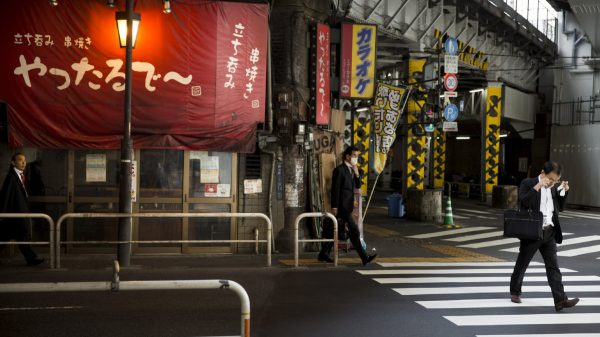Japan set to Take more workers

Keizo Yamawaki:
As the revised Immigration Control and Refugee Recognition Act enacted last December took effect in April, the government set in motion newly created visa statuses designed to admit foreign workers with certain skills or knowledge to make up for a serious domestic workforce shortage. Accordingly the Justice Ministry’s Immigration Bureau was reorganized and expanded into the Immigration Services Agency. As of the end of last December, about 2.73 million foreign people were living in Japan. The number of foreign residents in postwar Japan has continued to increase almost consistently. Although the number of foreign residents temporarily dropped after the global economic crisis in 2008 and the Great East Japan Earthquake in 2011, it has again begun to grow significantly since 2013. Today, foreign residents account for about 2 percent of Japan’s population. The amendment’s outline The new visa status has two categories. The first is provided to foreign people who have certain levels of knowledge or experience pertinent to specific industries and the second is for those who have expert knowledge and skills for specific industries. Non-Japanese in the first visa category can stay in Japan for up to five years but are not allowed to bring family members. Those in the second category can get their visas renewed to extend their stay and can be accompanied by family members. But the granting of this status is being postponed until fiscal 2021. Japan expects to accept up to 345,150 foreign workers in five years under the new visa statuses. They will include 60,000 people to work in the care-giving business, 53,000 in food service, 40,000 in the construction industry, 37,000 in building cleaning, 36,500 in farming, 34,000 in food and beverage manufacturing, and 22,000 in the lodging industry. To obtain the first category status, applicants need to pass tests for skills and Japanese-language ability. But those who have come to Japan under the Technical Intern Training Program and have worked here for three years will be exempt from the tests. So far, skill tests have been given for those wishing to work in the care-giving, restaurant and lodging industries. The introduction of the new system will no doubt increase the number of foreign residents in Japan. The government emphasizes that the measure is being taken to cope with the current workforce shortage. But given that Japan’s population, in particular those in the working-age bracket, is set to sharply decline this century, it is likely that more non-Japanese will start living and working in this country, even if greater use of artificial intelligence and robotics compensates for part of the labor crunch. It is therefore an urgent challenge for Japan to build an intercultural society in which people with diverse nationalities and ethnic backgrounds live together. ‘Living with foreigners’ policy In amending the immigration control law, the government worked out a “comprehensive policy to accept foreign talent and to live with them.” A key measure in the policy is to set up “one-stop centers” for “intercultural general consultation.” The government said it will help establish such centers where local governments provide information and consultation services at around 100 localities throughout the country. The government’s “comprehensive policy” does not feature specific measures for local communities nor countermeasures against hate speech. As a whole it focuses on assistance for foreign workers and it fails to sufficiently prepare people at large for living together with people from different cultural backgrounds and to reduce prejudice and discrimination against them. Since the early 2000s, I have been campaigning for enacting legislation and establishing a relevant organization to build an intercultural society. Unfortunately, the government policy makes no mention of such steps. Laws for ‘intercultural Japan’ Most developed countries have enacted laws to advance social integration and have organizations in charge of the task. Germany in 2005 put the Immigration Law into force and the Federal Office for Migration and Refugees within the Ministry of the Interior started offering an integration course for immigrants to learn the German language and Germany’s legal order, culture and history. South Korea in 2007 enacted the Act on the Treatment of Foreigners in Korea and the Justice Ministry started carrying out a program through which foreign people can learn the Korean language and South Korea’s economy, society and laws. Taiwan in 1999 passed the Immigration Act and the National Immigration Agency, which was established in 2007. It is promoting a social integration policy under the vision of “respecting multiculturalism and safeguarding the human rights of immigrants.” Last week, a law to promote Japanese-language education was enacted in the Diet. The legislation aims to realize a “vibrant cohesive society that respects diverse cultures” as well as to facilitate exchanges with other countries through the promotion of Japanese-language education. It is a landmark piece of legislation, since the role of teaching Japanese to foreign residents here has mainly rested on the efforts of citizen volunteers for many years. It makes clear the responsibility of the national and local governments as well as businesses for advancing Japanese-language education, although it seems unlikely that the government will set up a language program for foreign residents anytime soon. As developed countries compete to attract foreign workers, Japan needs to create a system to build an intercultural society by learning from the efforts and measures that other countries have established over the years. Is Japan moving toward being a country of immigration? Yes, but very cautiously.





























Leave a Reply